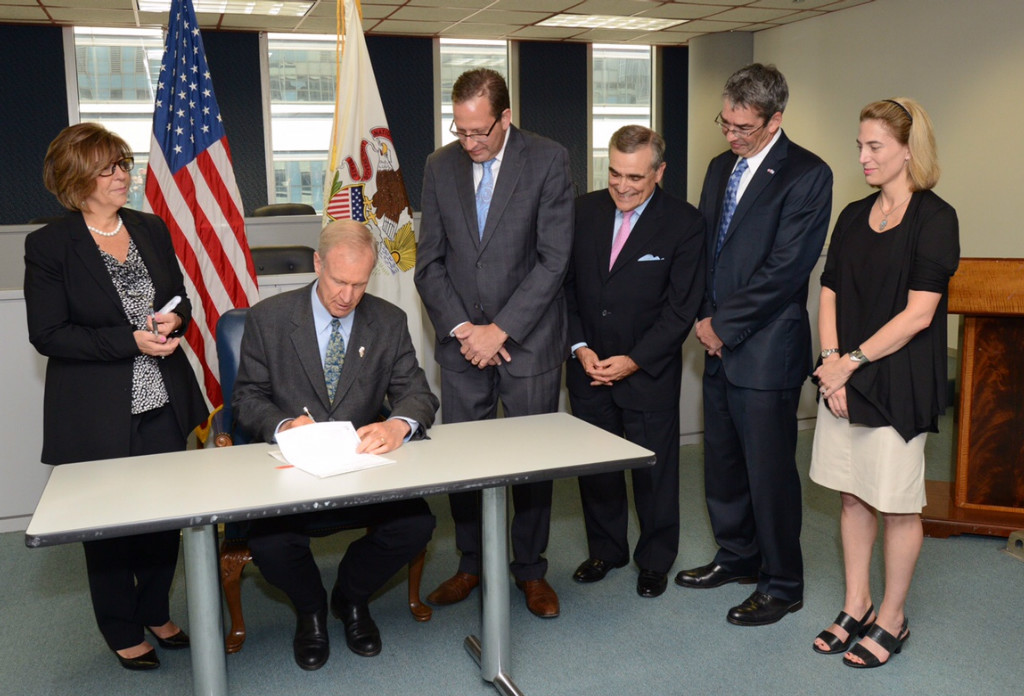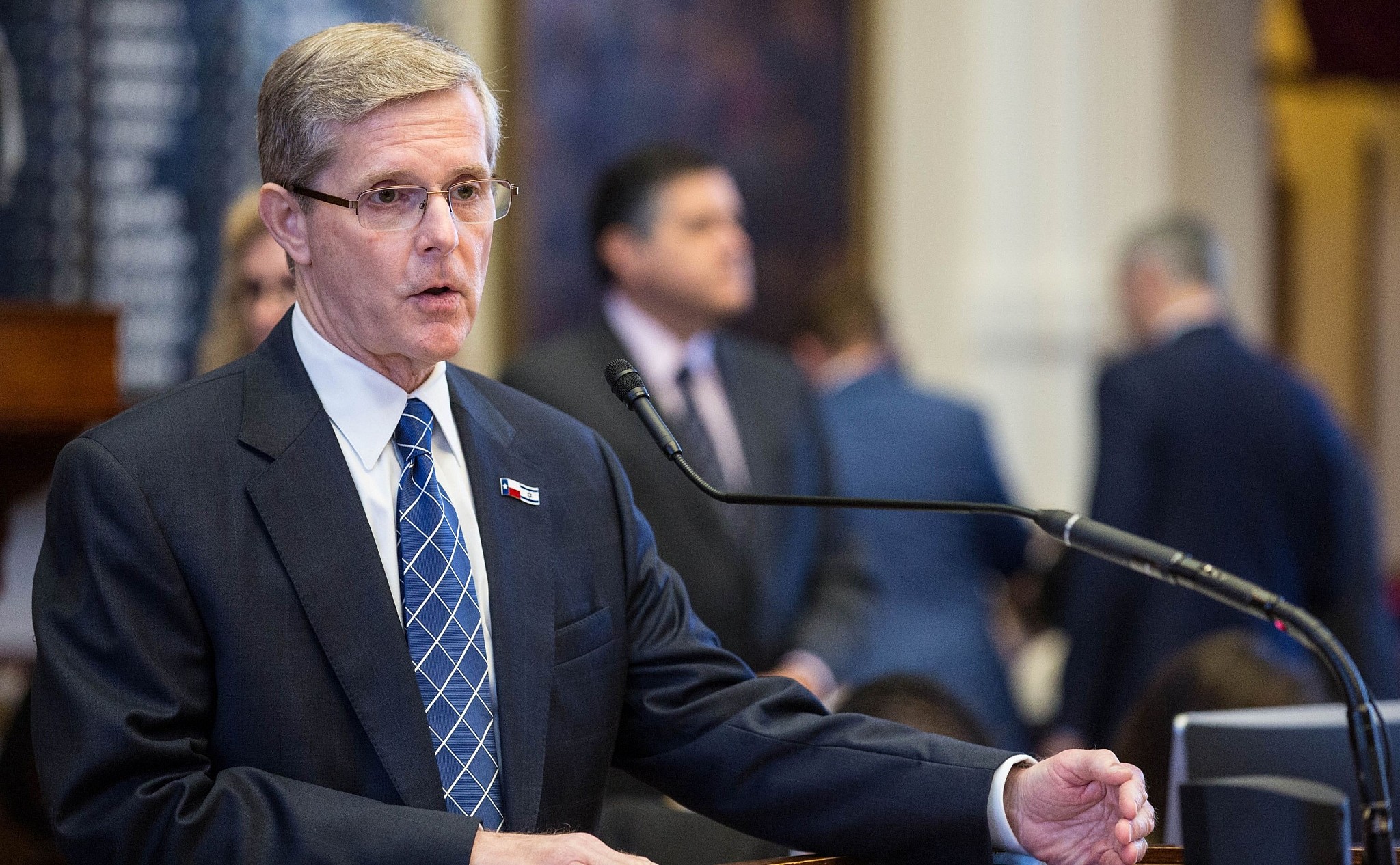As Texas continued to dry out from Hurricane Harvey, one city found itself embroiled in a bit of an imbroglio.
The city of Dickinson, a Houston suburb, announced it wouldn’t approve grants to repair hurricane damaged homes or businesses if the applicant supported boycotting Israel.
It was in the manual. The city’s flood assistance application included this clause: “By executing this Agreement below, the Applicant verifies that the Applicant: (1) does not boycott Israel; and (2) will not boycott Israel during the term of this Agreement.”
The clause was included because Texas law bars state agencies from contracting with or investing in companies that boycott Israel. The city council voted to remove the clause as it pertains to individuals. However, businesses must still pledge to not boycott Israel in keeping with the Texas law.

As controversial as the law may be, it enjoys broad bipartisan support in the Lone Star State. In fact, nearly half the states in the country — regardless of political majority — support anti-Boycott, Divestment and Sanctions (BDS) legislation, belying the popular narrative that Israel has become a polarizing issue.
“To those saying Israel is an increasingly partisan issue, that narrative is prescriptive rather than descriptive. In Congress, and across the country, Israel is, on a basic level, bipartisan and this legislation really shows that,” said Northwestern University law professor Eugene Kontorovich.
That there are now 24 states in the nation to have anti-BDS laws is a testament to that bipartisanship.
With Executive Order no. 261 Wisconsin became the most recent state nationwide to pass a law prohibiting discriminatory boycotts of Israel in state contracting.

While the wording and scope of the laws vary state to state, it’s important they pass with clear majorities, said Dan Feferman, a foreign policy strategist with the Israel-based Jewish People Policy Institute. This means they are less likely to be challenged in court. It also means a legislator would try to weaken the law or amend it in subsequent legislative sessions.
Some laws require states to divest public pension funds from companies that boycott Israel. Some prevent states from contracting with companies. Some do both. And some laws specifically mention Israel, while others speak of discrimination in more general terms.
However, none of the laws ban or punish criticism of Israel. And none of them stop a business or person from boycotting Israel.
In Texas the legislation passed its law with an overwhelming majority, said Republican Rep. Phil King, who authored the bill.
“Our Christian culture in Texas has strong ties to biblical Israel and we have a substantial Jewish community. So we felt strongly about this. It was a really good marriage of Jewish and Christian ideals,” King said.
“Also Israel is Texas’s fourth largest trading partner. If Texas were its own country we’d be the 12th largest GDP in the world. Think of the economic implication if we boycotted Israel,” he said.
The Texas law prohibits any state pension fund from investing in any country that boycotts Israel and no government entity can purchase any goods or services from a company that boycotts Israel.
Not just window dressing
“The vast majority [of the laws] have teeth and are punitive. They are practical and symbolic,” Feferman said. “On the practical level the laws keep the anti-Israel movement busy. BDS is a weapon in their tool kit and these laws put them on the defensive. The laws also can snatch away important psychological victories from BDS.”
Moreover, the laws provide cover for companies that might feel pressure to cut ties with Israel for fear of being tarnished by the BDS movement, said Peggy Shapiro, executive director of StandWithUS Midwest. If companies are afraid of doing business, then workers lose and states can take an economic hit, she said.

Indeed, Wisconsin and Israel enjoy a robust trading relationship, according to the governor’s office. Wisconsin exports over $80 million annually to Israel and imports over $200 million annually from Israel.
“I think people don’t realize how much is at stake. Take a drive through Israel and you realize the research and development there is another aspect of Silicon Valley. When Wisconsin had water cleaning problems whom did it turn to? Israel. When California had the drought whom did it turn to? Israel. When states want cyber security whom do they turn to? Israel,” said Shapiro, who worked with Wisconsin on the executive order.
Signed into law in 2015, Illinois SB 1761 “requires each of the five State-funded retirement systems [or the Illinois State Board of Investment where applicable] to make its best efforts to identify all companies that boycott Israel in which it has direct or indirect holdings and, under certain circumstances, to divest itself of holdings in those companies.”
On the list is ASN Bank of the Netherlands, which divested from a company building Jerusalem’s light rail as well as the South African importer Karsten Farms. They later divested from an Israeli dates exporter that was supplied by a West Bank farm.
There have been instances where a local law was successfully challenged.
But anti-BDS legislation in Nassau County couldn’t stop Pink Floyd frontman and anti-Israel activists Roger Waters from performing at Long Island’s Nassau Coliseum.
Because the Coliseum is county-owned, it is subject to local law 3-2016, which prohibits the county from doing business with any company participating in the economic boycott of Israel, said local legislators and Nassau County Attorney Carnell T. Foskey.
The New York Civil Liberties Union interceded, arguing that preventing Waters from performing violated the First Amendment. Ultimately, the county attorney decided against pursuing legal action against the venue.

Small state, big message
A little more than 1,700 miles northeast of Texas, tiny Rhode Island also passed legislation. And, like Texas, the law passed with an overwhelming majority.
“This is not a Democrat or a Republican issue. You couldn’t even say this was a Jewish issue. You had a number of Christian groups saying how can we help,” said State Rep. Mia Ackerman, a Democrat who introduced the legislation.
For Rhode Island the law, which passed 63-4 in the House, and “in concurrence” in the Senate, was less about a specific company and more about sending a message. Although the state does have about $6 million in commerce back and forth between Israel, it hopes to do more.

“We kept hearing about other states that were passing laws and we said, we may be a teeny little state of 1 million, but that doesn’t mean we can’t have an impact,” Ackerman said.
When Florida signed Bill Number SB 86 into law in March 2016, it required the State Board of Administration to list all companies with public funding who “engaged in a boycott of Israel.” However, as it stands the law allows municipal governments to do up to $1 million of business annually with anti-Israel companies.
As such, two Florida lawmakers recently filed bills to strengthen the law. The bills call for “a zero-tolerance policy for contracts with pro-BDS companies,” according to floridapolitics.com.
Aside from bolstering existing laws, new states are likely to craft and pass anti-BDS legislation, Northwestern University’s Kontorovich said.



